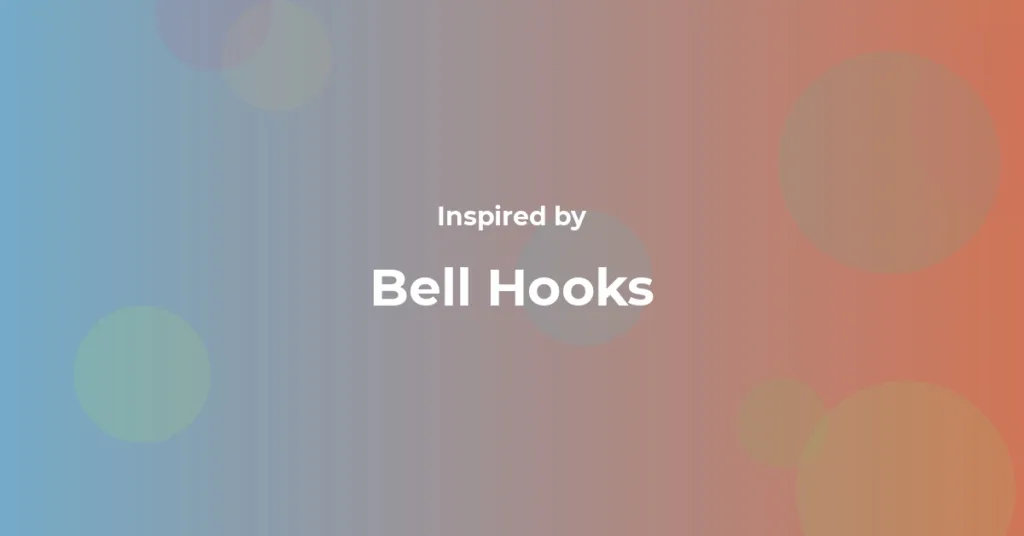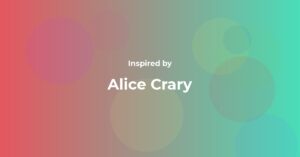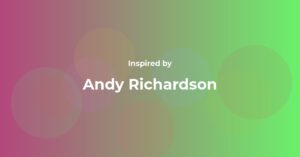
Bell Hooks Famous Quotes and Affirmations
Bell Hooks, born Gloria Jean Watkins in 1952, was a transformative feminist theorist, cultural critic, and author whose work reshaped discussions on race, gender, and class. Writing under her pen name, inspired by her maternal great-grandmother, Hooks challenged societal norms with unflinching honesty and profound insight. Her intersectional approach to feminism emphasized the interconnectedness of oppression and the need for love and community in the fight for justice. Over her prolific career, she authored more than 30 books, addressing systemic inequalities and personal liberation with a voice that was both scholarly and accessible. This article explores her enduring wisdom through her most impactful words, affirmations inspired by her philosophy, and an in-depth look at her life and contributions. Hooks’ legacy continues to inspire activists, scholars, and individuals seeking a more equitable world, reminding us of the power of critical thought and compassionate action.
Bell Hooks Best Quotes
Bell Hooks’ words have resonated deeply with readers and activists alike, offering profound insights into the nature of oppression, love, and liberation. Below are some of her most impactful quotes, sourced directly from her published works with precise citations:
- “The moment we choose to love we begin to move against domination, against oppression. The moment we choose to love we begin to move towards freedom, to act in ways that liberate ourselves and others.” – Bell Hooks, Outlaw Culture (1994), p. 152
- “If we want a beloved community, we must stand for justice, have recognition for difference without attaching difference to privilege.” – Bell Hooks, Communion: The Female Search for Love (2002), p. 9
- “Dominator culture has tried to keep us all afraid, to make us choose safety instead of risk, sameness instead of diversity. Moving through that fear, finding out what connects us, reveling in our differences; this is the process that brings us closer, that gives us a world of shared values, of meaningful community.” – Bell Hooks, Teaching Community: A Pedagogy of Hope (2003), p. 197
- “To be truly visionary we have to root our imagination in our concrete reality while simultaneously imagining possibilities beyond that reality.” – Bell Hooks, Feminism Is for Everybody: Passionate Politics (2000), p. 110
- “When we face pain in relationships our first response is often to sever bonds rather than to maintain commitment.” – Bell Hooks, All About Love: New Visions (2000), p. 11
We recommend the following books for self improvement:

365 (+1) Affirmations to Supercharge Your Life
The one-of-a-kind program contained in this affirmation book, adorned with beautiful and colorful artworks, is meticulously designed to be wholeheartedly embraced by your subconscious mind, enabling you to manifest the life you desire.
Buy on Amazon
Small Habits Revolution: 10 Steps To Transforming Your Life Through The Power Of Mini Habits
If you're frustrated by failed attempts to adopt new habits, there's good news. The solution is within your grasp. This fast-moving guide provides actionable advice that will help you to make positive, purposeful, lasting changes in your life.
Buy on Amazon
Embrace What You Can’t Change
"Embrace What You Can’t Change" by the insightful duo Ahiranta Rinpoche and Ozay Rinpoche is a transformative guide that invites readers to navigate the complexities of life with grace and acceptance.
Buy on Amazon
We Can Do Better: A Self-Help Book for People Who Are Tired of Self-Help Books
We Can Do Better isn’t another book telling you to hustle harder or wake up at 5 a.m. It’s not about fixing yourself — it’s about finally giving yourself permission to stop performing and start feeling human again.
Buy on Amazon
The P.R.I.M.E.R. Goal Setting Method
Amazon bestselling author Damon Zahariades provides a clear, concise, and actionable system for accomplishing anything you set out to do. You'll learn how to approach goal setting in a way that practically guarantees success. Along the way, you'll experience a massive boost in self-confidence. After achieving goal after goal, you'll begin to anticipate success as a foregone conclusion.
Buy on AmazonThis post contains affiliate links. As an Amazon Associate, we earn from qualifying purchases at no additional cost to you.
Famous Bell Hooks Aphorisms
Bell Hooks often distilled complex ideas into concise, powerful statements that serve as aphorisms for personal and political transformation. Below are some of her notable aphorisms, directly sourced from her works with exact citations:
- “Love is an action, never simply a feeling.” – Bell Hooks, All About Love: New Visions (2000), p. 13
- “Feminism is a movement to end sexism, sexist exploitation, and oppression.” – Bell Hooks, Feminism Is for Everybody: Passionate Politics (2000), p. 1
- “True resistance begins with people confronting pain… and wanting to do something to change it.” – Bell Hooks, Yearning: Race, Gender, and Cultural Politics (1990), p. 215
Affirmations Inspired by Bell Hooks
While Bell Hooks’ direct words carry immense power, her ideas also inspire personal affirmations that reflect her commitment to love, justice, and self-awareness. Below are 50 affirmations crafted in the spirit of her teachings, encouraging personal growth and societal change:
- I choose love as a revolutionary act.
- I stand against oppression in all its forms.
- My voice matters in the fight for justice.
- I embrace differences without hierarchy.
- I am committed to building a beloved community.
- I confront pain with courage and hope.
- I seek freedom for myself and others.
- I reject domination and embrace equality.
- I am rooted in reality while dreaming of change.
- I value connection over division.
- I honor my struggles as part of my strength.
- I challenge systems that harm and exclude.
- I cultivate love as a daily practice.
- I recognize the power of my own agency.
- I am unafraid to question societal norms.
- I commit to healing through understanding.
- I see beauty in diverse perspectives.
- I resist fear by choosing community.
- I am a force for positive transformation.
- I hold space for others’ pain and joy.
- I reject privilege that harms others.
- I am dedicated to lifelong learning.
- I speak truth even when it’s hard.
- I build bridges where walls once stood.
- I am guided by compassion in all I do.
- I challenge myself to grow beyond comfort.
- I honor the interconnectedness of all struggles.
- I am present in my fight for equity.
- I value vulnerability as strength.
- I resist silence in the face of injustice.
- I create spaces for honest dialogue.
- I am inspired by the power of collective action.
- I seek to understand before being understood.
- I am committed to dismantling patriarchy.
- I embrace my role in social change.
- I reject competition in favor of collaboration.
- I am a seeker of truth and justice.
- I honor my heritage while forging new paths.
- I am grounded in hope, not despair.
- I challenge racism with awareness and action.
- I am a witness to others’ humanity.
- I practice love as a form of resistance.
- I am open to unlearning harmful beliefs.
- I stand for equity in every space I occupy.
- I am a learner in the school of liberation.
- I value community over individualism.
- I am fearless in my pursuit of fairness.
- I embrace the complexity of my identity.
- I am a catalyst for meaningful change.
- I live with intention, inspired by justice.
Main Ideas and Achievements of Bell Hooks
Bell Hooks, born Gloria Jean Watkins on September 25, 1952, in Hopkinsville, Kentucky, emerged as one of the most influential feminist thinkers of the late 20th and early 21st centuries. Her adoption of the pen name “bell hooks”—written in lowercase to de-emphasize the self and honor her great-grandmother—reflected her commitment to humility and community over individualism. Raised in a segregated, working-class Black community, Hooks’ early experiences with racial and economic inequality profoundly shaped her intellectual pursuits. She pursued education as a means of liberation, earning a bachelor’s degree from Stanford University in 1973, a master’s from the University of Wisconsin-Madison in 1976, and a doctorate from the University of California, Santa Cruz in 1983. Her academic journey was not merely personal but a foundation for her broader mission to challenge systemic oppression through critical thought and accessible writing.
Hooks’ intellectual contributions are rooted in her intersectional approach to feminism, a framework that examines how race, gender, class, and other identities intersect to create unique experiences of oppression. Unlike mainstream feminist movements of the 1970s and 1980s, which often centered white, middle-class women’s experiences, Hooks insisted on a more inclusive feminism that addressed the compounded marginalization faced by Black women and other women of color. Her first major work, Ain’t I a Woman: Black Women and Feminism (1981), critiqued the historical exclusion of Black women from both feminist and civil rights discourses. She argued that Black women faced a “double bind” of racism and sexism, a concept that became foundational to intersectional theory. This book, written while she was still a graduate student, established her as a bold voice willing to confront the blind spots within progressive movements.
Beyond intersectionality, Hooks was a fierce critic of what she termed “dominator culture”—the societal structures that perpetuate hierarchy through violence, control, and fear. She believed that systems of oppression, whether patriarchal, capitalist, or racist, were interconnected and required a holistic approach to dismantling. Her work emphasized the transformative power of love as a political act, a theme most fully explored in her trilogy on love: All About Love: New Visions (2000), Salvation: Black People and Love (2001), and Communion: The Female Search for Love (2002). In these texts, Hooks redefined love not as a fleeting emotion but as a deliberate choice to nurture, heal, and resist oppression. She argued that love could be a radical force for building community and challenging the alienation fostered by dominator culture.
Education was another cornerstone of Hooks’ philosophy. As a professor at institutions like Oberlin College, Yale University, and Berea College, she advocated for a “pedagogy of hope” that empowered students to think critically and engage with the world as active participants rather than passive recipients of knowledge. Her books Teaching to Transgress: Education as the Practice of Freedom (1994) and Teaching Community: A Pedagogy of Hope (2003) challenged traditional academic hierarchies and emphasized the classroom as a space for liberation. Hooks believed that education should not reproduce existing power structures but instead foster dialogue, vulnerability, and mutual growth. Her approach was deeply personal; she often drew on her own experiences as a Black woman navigating predominantly white academic spaces to illustrate the need for inclusive, transformative learning environments.
One of Hooks’ most significant achievements was her ability to make complex theoretical ideas accessible to a broad audience. Unlike many academics who write for specialized readers, Hooks prioritized clarity and engagement, ensuring her work resonated with those outside the ivory tower. Books like Feminism Is for Everybody: Passionate Politics (2000) served as primers for individuals new to feminist thought, breaking down concepts like sexism and patriarchy with straightforward language and relatable examples. Her commitment to accessibility stemmed from her belief that liberation required collective understanding and action, not elite intellectualism. This ethos made her a public intellectual whose influence extended beyond academia into activism, popular culture, and everyday conversations about justice.
Hooks also tackled the intersections of race and representation in media and culture, notably in works like Black Looks: Race and Representation (1992) and Outlaw Culture: Resisting Representations (1994). She critiqued the ways in which Black bodies and experiences were commodified or stereotyped in mainstream media, calling for representations that honored complexity and humanity. Her analysis of films, music, and literature revealed how cultural products often reinforced dominator culture, while also highlighting the subversive potential of art to challenge norms. Hooks’ cultural criticism was not merely academic; it was a call to action for creators and consumers to demand and produce work that uplifted marginalized voices.
Throughout her career, Hooks remained a prolific writer, producing over 30 books and countless essays and articles. Her versatility as a thinker allowed her to address a wide range of topics, from spirituality in The Will to Change: Men, Masculinity, and Love (2004) to the politics of childhood in Bone Black: Memories of Girlhood (1996). Her autobiographical writing, in particular, offered intimate glimpses into how personal experiences of pain, joy, and resistance informed her broader theories. This blending of the personal and political was a hallmark of her work, reflecting her belief that individual transformation was inseparable from collective liberation.
Among her many accolades, Hooks received recognition for her contributions to feminist thought and social justice, though she often eschewed personal acclaim in favor of focusing on the work itself. Her impact is perhaps best measured not in awards but in the generations of activists, scholars, and everyday individuals who cite her as an inspiration. She mentored countless students and writers, encouraging them to find their own voices while remaining grounded in community and accountability. Her insistence on love as a radical ethic—whether in personal relationships or political struggles—challenged the cynicism of a world often defined by conflict and division.
Until her passing on December 15, 2021, Hooks continued to write and speak on issues of justice, refusing to rest on her laurels. Her later works, such as Belonging: A Culture of Place (2008), explored themes of home and rootedness, reflecting on her return to Kentucky and the importance of place in shaping identity. Her life’s work stands as a testament to the power of critical thought, compassionate action, and unwavering commitment to equity. Bell Hooks did not merely theorize about a better world; she provided tools for building it, urging each of us to engage in the messy, necessary work of liberation.
Magnum Opus of Bell Hooks
Determining the magnum opus of Bell Hooks is a complex task given the breadth and depth of her oeuvre, but All About Love: New Visions (2000) stands out as her most enduring and widely impactful work. Published at the turn of the millennium, this book synthesizes many of Hooks’ core ideas—intersectionality, resistance to dominator culture, and the transformative power of community—while focusing on the concept of love as both a personal and political force. Unlike her earlier works, which often centered on specific aspects of oppression like race or gender, All About Love offers a broader, more universal exploration of human connection, making it accessible to readers who may not identify with feminist or activist circles. Its influence lies in its ability to bridge the personal and the political, inviting readers to reconsider how love operates in their lives and in society at large.
All About Love begins with a deceptively simple premise: love is not merely a feeling but an action, a deliberate choice that requires intention, effort, and accountability. Hooks challenges the romanticized, often superficial notions of love perpetuated by popular culture, arguing that true love encompasses care, respect, honesty, and commitment. She writes with a clarity that cuts through sentimentality, grounding her discussion in real-world struggles such as abuse, neglect, and societal pressures that distort genuine connection. By framing love as a verb, Hooks shifts the focus from passive emotion to active practice, urging readers to cultivate relationships that resist the hierarchical dynamics of dominator culture.
One of the book’s central arguments is that love is inherently political. Hooks asserts that a society rooted in domination—whether through patriarchy, racism, or capitalism—cannot foster genuine love, as these systems prioritize control over mutual growth. She critiques how individualism and consumerism have eroded communal bonds, leaving many people isolated and fearful of vulnerability. In response, Hooks proposes a vision of love as a radical act of resistance, one that builds “beloved communities” where justice and equity prevail. This idea connects directly to her earlier works on feminism and race, but in All About Love, she extends the conversation to include everyone, regardless of identity, emphasizing that the capacity to love is a shared human potential.
Structurally, the book is divided into chapters that explore different dimensions of love, from romantic partnerships to familial bonds, friendships, and self-love. Hooks draws on a wide range of sources, including personal anecdotes, psychological research, and spiritual traditions, to build her case. Her discussion of self-love is particularly poignant; she argues that without a foundation of self-acceptance, individuals cannot fully extend love to others. This insight challenges the cultural tendency to equate self-love with narcissism, instead framing it as a necessary precursor to communal healing. Hooks’ own experiences of grappling with self-worth as a Black woman in a society that devalues her identity lend authenticity and urgency to her words.
Another significant theme in All About Love is the role of pain and loss in shaping our capacity to love. Hooks does not shy away from the messiness of human relationships, acknowledging that hurt is inevitable when we open ourselves to others. However, she encourages readers to view pain not as a reason to withdraw but as an opportunity for growth and deeper connection. Her discussion of grief, inspired by her reflections on personal losses, underscores the importance of confronting rather than avoiding emotional wounds. This approach mirrors her broader philosophy of facing systemic oppression head-on rather than seeking temporary comfort in denial or complicity.
The book also addresses the intersection of love and power, particularly in romantic and familial contexts. Hooks critiques the ways in which patriarchal norms distort relationships, often casting men as dominant and women as submissive. She calls for partnerships based on mutuality, where power is shared rather than wielded. Her analysis extends to parenting, where she advocates for nurturing environments that prioritize emotional honesty over authoritarian control. By linking personal dynamics to larger societal structures, Hooks illustrates how transforming our private lives can contribute to broader cultural change—a recurring motif in her work but articulated with particular force in this text.
All About Love has been celebrated for its accessibility and emotional resonance, distinguishing it from Hooks’ more academically oriented texts. Written in a conversational tone, it feels like a dialogue between author and reader, reflecting Hooks’ commitment to education as a communal act. Its impact is evident in its enduring popularity; the book remains a touchstone for individuals seeking to navigate relationships in a world fraught with division and distrust. It has been widely taught in university courses, discussed in book clubs, and recommended by therapists, attesting to its versatility and relevance across contexts.
Critically, the book is not without its detractors. Some argue that Hooks’ emphasis on love as a solution to systemic issues risks oversimplifying the structural barriers to equity. Others find her spiritual references—drawing on figures like M. Scott Peck and Buddhist teachings—jarring in a text otherwise grounded in social critique. Yet even these critiques acknowledge the book’s ambition and sincerity. Hooks’ willingness to blend personal reflection with political analysis creates a unique space for readers to engage with her ideas on multiple levels, whether as a guide for self-improvement or a manifesto for social change.
In the context of Hooks’ broader career, All About Love represents a culmination of her earlier explorations of oppression and liberation while pointing toward the more introspective, spiritual focus of her later works. It builds on the intersectional framework of Ain’t I a Woman, the cultural critique of Black Looks, and the pedagogical insights of Teaching to Transgress, weaving these threads into a cohesive argument for love as the ultimate act of resistance. Its publication at the dawn of a new century also positions it as a hopeful, forward-looking text, offering a blueprint for reimagining human connection in an era of increasing alienation.
Ultimately, All About Love: New Visions stands as Bell Hooks’ magnum opus because it encapsulates her lifelong mission to challenge dominator culture and foster a world rooted in justice and compassion. Its influence extends beyond academia into the lived experiences of countless readers who have found solace and inspiration in its pages. By centering love as both a personal ethic and a political strategy, Hooks offers a vision of liberation that is as practical as it is profound, solidifying her legacy as a thinker who dared to imagine—and demand—a better way of being.
Interesting Facts About Bell Hooks
Bell Hooks, a towering figure in feminist theory and cultural criticism, lived a life as compelling and multifaceted as her intellectual contributions. Born Gloria Jean Watkins on September 25, 1952, in Hopkinsville, Kentucky, she grew up in a segregated, working-class community that shaped her early awareness of racial and economic inequality. Her decision to adopt the pen name “bell hooks”—inspired by her maternal great-grandmother, Bell Blair Hooks—reflected her desire to honor her lineage while de-emphasizing personal ego, a choice symbolized by her use of lowercase letters. This act of naming was itself a political statement, aligning with her broader rejection of hierarchical norms and her emphasis on community over individualism.
Education played a pivotal role in Hooks’ life from an early age. As a child, she attended segregated schools where she encountered both the limitations of systemic racism and the transformative potential of learning. Her love for reading and writing emerged as a refuge and a tool for resistance, leading her to pursue higher education despite significant barriers. She earned her bachelor’s degree in English from Stanford University in 1973, an achievement that marked her entry into predominantly white academic spaces. Her experiences of alienation and resilience during this time later informed her pedagogical theories, particularly her advocacy for inclusive, liberatory education.
Before becoming a full-time writer and professor, Hooks held a variety of jobs that grounded her in the realities of working-class life. She worked as a telephone operator and in other clerical roles, experiences that deepened her understanding of labor exploitation and economic disparity. These early struggles contrasted with her later academic career, during which she taught at prestigious institutions like Yale University, Oberlin College, and the City College of New York. Her return to Kentucky later in life, where she joined the faculty at Berea College, reflected her commitment to place and community, themes explored in her book Belonging: A Culture of Place (2008).
One lesser-known aspect of Hooks’ life is her deep engagement with spirituality. While often recognized for her political and social critiques, she also drew on spiritual traditions—ranging from Christianity to Buddhism—to inform her understanding of love and healing. This dimension of her thought became more prominent in her later works, where she explored how spiritual practices could sustain personal and collective resistance to oppression. Her willingness to integrate spirituality into feminist discourse challenged the secular bias of much academic theory, broadening the scope of her impact.
Hooks’ personal life, though often private, also offers insights into her philosophy. She never married or had children, choices she discussed in her writings on love and independence. Her reflections on solitude and self-love, particularly in Communion: The Female Search for Love (2002), reveal a woman who valued deep connection but also recognized the importance of autonomy. Her relationships with family, especially her parents and siblings, were complex and often strained by the cultural shifts she navigated as a Black feminist, yet they provided rich material for her autobiographical works like Bone Black: Memories of Girlhood (1996).
Another intriguing facet of Hooks’ legacy is her influence on popular culture. While primarily an academic, her cultural criticism—especially in books like Outlaw Culture (1994)—engaged with figures and phenomena ranging from Madonna to gangsta rap. She was unafraid to critique mainstream media while also celebrating the subversive potential of art by marginalized creators. Her ability to speak to both scholarly and general audiences made her a unique public intellectual, one whose ideas permeated discussions far beyond the classroom.
Hooks’ passing on December 15, 2021, at the age of 69, marked the end of a life dedicated to challenging oppression and envisioning liberation. Her death, attributed to kidney failure, prompted an outpouring of tributes from scholars, activists, and readers worldwide. Her final resting place in Kentucky, near the landscapes that shaped her early years, symbolizes her enduring connection to her roots. Even in death, Hooks continues to inspire through her vast body of work, which remains a vital resource for those seeking to understand and transform the world.
Daily Affirmations that Embody Bell Hooks Ideas
The following daily affirmations are inspired by Bell Hooks’ teachings on love, justice, and liberation, designed to encourage personal reflection and active engagement with her ideas:
- I choose to love as a form of resistance today.
- I stand against injustice in my words and actions.
- I embrace my unique identity with pride.
- I seek to build community wherever I go.
- I confront fear with courage and hope.
- I commit to learning and unlearning daily.
- I value connection over division in my interactions.
- I speak truth, even when it challenges norms.
- I honor the struggles of others as my own.
- I practice compassion as a radical act.
- I reject systems of domination in my life.
- I am a force for equity and healing.
- I see strength in vulnerability and honesty.
- I am dedicated to creating a just world.
- I live with intention, inspired by liberation.
Final Word on Bell Hooks
Bell Hooks’ legacy is a beacon for those navigating the complexities of oppression and liberation. Her fearless critique of dominator culture—whether manifested through racism, sexism, or classism—challenged society to confront its failures while offering a vision of transformation rooted in love and community. Through her vast body of work, she dismantled barriers between the personal and political, showing that individual healing and societal change are inseparable. Her insistence on accessibility ensured that her ideas reached beyond academia, touching lives across generations and backgrounds. Hooks’ passing in 2021 marked not an end but a call to action; her words remain a living force, urging us to build a “beloved community” where justice prevails. As we reflect on her contributions, we are reminded that her greatest gift was not just her analysis but her belief in our collective capacity to create a better world through critical thought and compassionate action.








